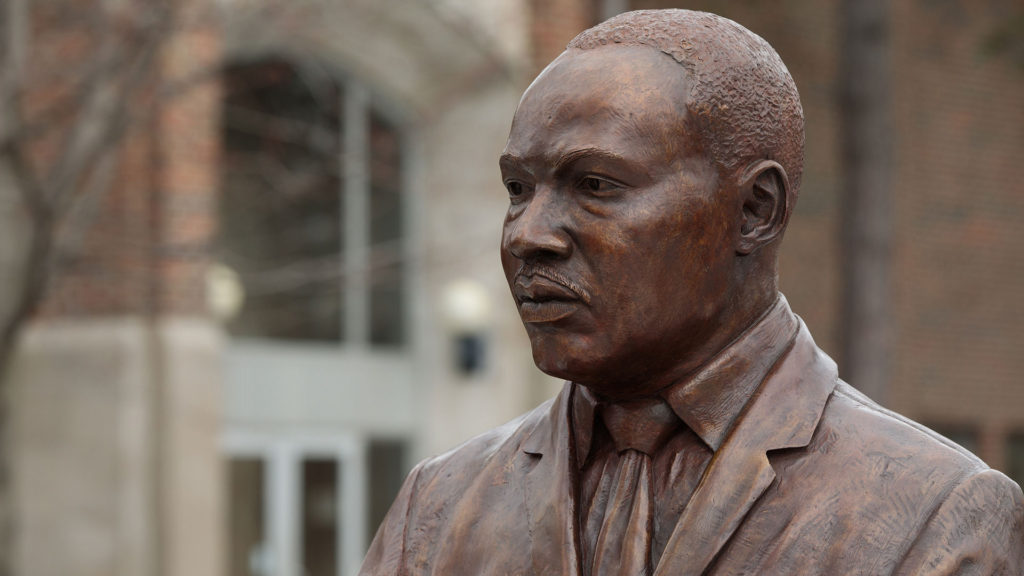CHICAGO, IL – The civil rights attorneys at the Dinizulu Law Group, Ltd. individuals who have been injured by police misconduct. Police misconduct may involve one ore more of the following: police shootings, illegal searches, unlawful arrests, wrongful convictions and excessive force.
Contact the Dinizulu Law Group today for a case evaluation and discuss how to we can help protect your flights. Below are some frequently asked questions related to civil rights matters.
What exactly is civil rights?
Civil rights are an individual’s rights to receive equal treatment in any number of settings. This includes, but is not limited to, equal treatment in housing, education, employment and other areas. These rights are not the same as human rights.
“Civil rights” is derived from the “Civil Rights Movement” of the 1960s when African Americans marched to achieve true equality in all areas of society. Civil rights has expanded to describe the promotion of equality for all people regardless of their race, sex, age, disability, nationality, religion or other characteristics.
In the United States, three bodies of legislation define civil rights: the Bill of Rights, the 13th and 14th amendments to the constitution and the Civil Rights Act of 1964.
What is the basis for a civil rights claim?
Civil rights claims exist because certain rights are guaranteed under federal law. If someone denies these rights, you have the basis for a civil rights claim. Below are examples of situations that violate the civil rights laws:
- An apartment complex refuses to let you rent a property because of your ethnic status.
- An employer hires someone less qualified because they are unwilling to accommodate your religious beliefs.
- A hospital refuses to admit you because you don’t appear to have the financial ability to pay for your hospitalization expenses.
- An employer exploits you because you’re a migrant worker, refusing to compensate you for your labor.
What should I do if I think I have been discriminated against on the job in violation of the law?
It’s best to bring your complaint directly to your supervisor and attempt to resolve matters at that level. Your supervisor might not be aware that discrimination is going on. When this doesn’t resolve the issue, you may pursue legal counsel.
There are strict laws regarding discrimination so it’s important you act swiftly. State and federal laws both apply, so consulting with an experienced civil rights attorney is essential.
What are the steps I need to take if my employer has violated my civil rights?
Keep a journal and detail the events so it’s easy to reconstruct the events surrounding your civil rights claim to make it easier to evaluate the strength of your case.
Gathering evidence that will support your claim is critical. Some evidence attorneys will use to support civil rights claims include written or spoken comments, time and place of an incident, differences between you and the violator, and the background of the violator.
Is my employer liable for my hostile environment harassment?
It depends on who is creating the hostile environment. The employer is responsible for supervisors and managers who are perpetrators of a hostile work environment unless they can prove that they have exercised reasonable action to prevent and correct the behavior.
The employer is also responsible for harassment from colleagues or customer if the employer was negligent in addressing the problem. Employers must prove they exercised reasonable care in preventing the behavior. Retaining an employee with a history of civil rights violations doesn’t reflect reasonable care.
How can I find a lawyer who knows my type of case?
You should retain an attorney who you feel comfortable telling all the details to resolve your problem. You want to feel comfortable and trust that your attorney is on your side.
I was fired and have no idea why. Do I have a case?
You may have a case if it can be proved there was no legitimate reason for you to be fired. There are many civil rights laws that prohibit an employer from firing an employee for reasons based on race, sex, religion, nationality, color, age or disability.
State and federal laws apply in these cases and an experienced civil rights attorney can evaluate the details of your situation and advise you the best course of action to take.
Is there anyone I can’t file a claim against?
If the civil rights violation was intentional, you may file a civil rights claim against an individual who is acting as an agent of a state or local government. Certain government officials who are acting within the scope of their official duties, such as judges, legislators, prosecutors or a parole or probation officers are exempt from civil rights action.
What does federal law allow me to seek in damages?
Federal law allows you to seek three things: monetary damages, court injunction and declaratory relief. Monetary damages is compensation awarded by a judge in the form of money to the victim. Second, you can seek a court injunction that requires the defendant to do something or to stop doing something. Finally, you can seek declaratory relief which states that the court has investigated your claim and found that your claim is right.
Contact a Civil Rights Lawyer in Illinois
Understanding your civil rights is essential for navigating various situations in life. By knowing your rights, you can ensure fair treatment and protect yourself from discrimination. If you ever find yourself in need of legal guidance regarding civil rights, don’t hesitate to reach out to the Dinizulu Law Group. Our expertise and commitment to justice can help you navigate the complexities of the law and ensure your rights are upheld.
To learn more or receive a free case evaluation, contact us by filling out this form or calling (312) 384-1920 to get started today!



